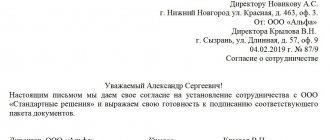28.01.19
M. Poluektov / AK Poluektova and partners
In our practice, we have many times encountered demands to invalidate a transaction on the grounds that such a transaction was made without the consent of the spouse or that such consent was flawed.
Moreover, in most cases, the desire to “break” the deal and take away a valuable asset arose from persons acting in bad faith. The husband simply stated that he allegedly did not know about this transaction and did not consent to its completion.
For a bona fide counterparty to a transaction, the risks of losing the acquired property are very significant.
Let us understand all the nuances of such cases.
Roots of the problem
In the Russian legal system, there is a de facto regime of hidden matrimonial property. In the public register (for example, the Unified State Register), one person may be listed as the owner, but in fact there is another owner - his spouse, about whom the bona fide purchaser may not know.
And this does not in any way contradict the rule of Article 8.1 of the Civil Code of the Russian Federation (hereinafter referred to as the Civil Code), according to which rights to property subject to state registration arise from the moment the corresponding entry is made in the state register.
The fact is that after these words there is a clause “unless otherwise provided by law.” And this “other” is established by Article 34 of the Family Code of the Russian Federation (hereinafter referred to as the FC), by virtue of which property acquired by spouses during marriage is their joint property “regardless of which spouse’s name it was acquired in.”
If the second (“unregistered”) spouse is the same owner as the first, then his opinion must be taken into account.
According to the general rule, paragraph 2 of Article 35 of the Family Code, when one of the spouses makes a transaction to dispose of the spouses’ common property, it is assumed that he is acting with the consent of the other spouse. Such a transaction can be challenged on the grounds of lack of consent of the other spouse only if the other party to the transaction knew or should have known about the other spouse’s disagreement with the transaction.
However, there is one exception to this general rule - this is clause 3 of Article 35 of the Family Code, according to which for certain three types of transactions it is necessary to obtain the notarized consent of the other spouse, i.e. the presumption of the spouse's consent does not apply in these cases.
What does certificate of equivalence mean?
Notarization of the equivalence of a document is of two types:
- certification of the equivalence of an electronic document to a document on paper;
- certification of the equivalence of a document on paper to an electronic document.
The essence of this procedure is confirmation of the identity of the content of an electronic document produced by a notary with the content of a document presented to the notary on paper.
The procedure for certifying the equivalence of a paper document to an electronic one means that the notary confirms the identity of the created digital copy of its physical version. That is, a digital copy becomes legally equivalent to a paper copy.
The certificate of equivalence in Russia appeared in 2013. The legal basis is Articles 103.8–103.9-1 “Fundamentals of the legislation of the Russian Federation on notaries.” The practice allows any citizen or organization to quickly transfer certified electronic documents anywhere in Russia.
When is a spouse's notarized consent required to complete a transaction?
By virtue of clause 3 of Article 35 of the Family Code, the notarial consent of the spouse is necessary to carry out the following transactions with the common property of the spouses:
- Or it must be a transaction for the disposal of property, the rights to which are subject to state registration .
These are not only real estate transactions, but also transactions with shares in the authorized capital of a limited liability company (clause 3 of the Resolution of the Plenum of the Supreme Court of the Russian Federation dated June 23, 2015 N 25), results of intellectual activity and means of individualization (in some cases), small and some other sea and inland navigation vessels, aircraft.
Rights to cars and shares are not subject to state registration, and therefore the notarized consent of the spouse is not required to complete a transaction with them.
- Or it must be a transaction for which the law requires a notarial form .
This may be a rent agreement, a pledge of a share in the authorized capital of an LLC, an escrow agreement (except for cases of depositing non-cash funds and uncertificated securities), an inheritance agreement, a transaction for the disposal of real estate under the terms of guardianship, an agreement on the transfer of a share in the authorized capital of an LLC ( with some exceptions), an agreement for the alienation or pledge of a share in the right of common ownership of real estate.
- Or it must be a transaction subject to mandatory state registration .
This may be a mortgage agreement or an agreement on the transfer of non-residential premises for long-term lease (for a period of 1 year or more).
It is necessary to distinguish between the concepts of “state registration of transfer of rights to property” and “state registration of a transaction”.
For example, when making a transaction for the sale and purchase of non-residential premises, only the transfer of ownership of the premises is registered, but not the contract itself. Such an agreement is considered concluded from the moment it is signed by the parties.
But when a transaction for the sale and purchase of a residential building or apartment is completed, both the contract itself and the transfer of rights are registered. Such an agreement is considered concluded from the moment of its registration, and not from the moment it is signed by the parties.
Option 1. Donation for close relatives, as well as in other cases when the transaction is accompanied by a lawyer, there is a simplified procedure for registering a gift (without collecting supporting documents about the rights of the owner) - drawing up an agreement in simple written form. The cost of such an agreement does not depend on the value of the object being donated; the term for drawing up the agreement is no more than an hour. If the package of documents is ready, you can submit it to Rosreestr for registration on the same day.
Option 2. Donation agreement certified by a notary . In this case, it is necessary to collect an additional package of documents confirming the rights of the owner, since the notary must check the “purity of the transaction” according to the submitted documents. A donation agreement certified by a notary is registered in Rosreestr 7 days faster than in the first option. But its cost is significantly more expensive (calculated as a percentage of the cadastral value).
Requirements for the content of the spouse's consent
Often, one spouse takes from the other spouse notarized consent to the alienation of any jointly acquired property without any specifics. Rosreestr accepts such consent and registers the transfer of rights.
In the future, the spouse who gave such “general” consent may try to challenge the transaction for the alienation of common property, referring to clause 3 of Article 157.1 of the Civil Code, which states: “The preliminary consent to the transaction must determine the subject of the transaction for which consent is given.”
As a rule, the courts in such disputes refuse to extend the effect of Article 157.1 of the Civil Code to the consent of the spouse and preserve the transaction.
The fact is that this article applies if the consent of a third party is required by force of law to complete a transaction, and the courts do not recognize spouses as “third parties in relation to each other” (they are co-owners, after all) and proceed from the fact that Article 35 The IC “does not provide for a mandatory indication in the consent of the spouse to carry out a transaction for the disposal of the property of a specific real estate object for the alienation of which it is given, does not contain a prohibition for one spouse to give consent to the other spouse for the alienation of any property belonging to them without indicating a specific list of it” (Resolution of the Presidium St. Petersburg City Court dated July 25, 2018 N 44g-128/2018).
True, there is also another practice, according to which Article 157.1 of the Civil Code is recognized as general, and Article 35 of the Civil Code as special. The following logic applies here. Clause 1 of Article 157.1 of the Civil Code states that “the rules of this article apply unless otherwise provided by law or other legal act.” Article 35 of the Insurance Code does not provide for “other” (that the subject of the transaction may not be indicated in the consent of the spouse). Therefore, some courts apply the rule of paragraph 3 of Article 157.1 of the Civil Code on the need to specify the subject of the transaction in the notarial consent of the spouse and do not recognize the “general” consent of the spouse.
Main stages of the procedure
- The client contacts the notary. Bring documents with you (the list will be below).
- The specialist creates a digital copy and signs it with his CEP.
- The certified version is recorded on a verified removable media or transmitted online (via email, cloud services).
If you additionally need to convert a document from electronic to paper, then the following happens:
- The certified copy is transferred to another notary.
- The specialist converts the document from electronic to paper and certifies their equivalence.
- The certified document is transferred to the second party.
Consequences of completing a transaction without the notarial consent of the spouse
It must be said right away that transactions made without the notarial consent of the spouse are contestable. That is, they are valid until the court declares them invalid (which is why their registration in Rosreestr often goes without problems).
As for challenging such transactions, not everything is so simple here and the practice of the courts is currently heterogeneous.
There are three norms whose application can be discussed:
- In relation to transactions made without the consent of a third party - clause 2 of Article 173.1 of the Civil Code :
“Unless otherwise established by law, a voidable transaction made without the consent of a third party required by law ... may be declared invalid if it is proven that the other party to the transaction knew or should have known about the absence of the necessary consent of such person at the time of the transaction...” .
- In relation to joint property in general (it doesn’t matter whether spouses or not) - clause 3 of Article 253 of the Civil Code :
“A transaction made by one of the participants in joint ownership related to the disposal of common property may be declared invalid at the request of the remaining participants on the grounds that the participant who made the transaction lacks the necessary powers only if it is proven that the other party to the transaction knew or obviously should have was aware of this."
- In relation to joint property exclusively of spouses - clause 3 of Article 35 of the Insurance Code :
“The spouse, whose notarized consent to carry out the specified transaction was not received, has the right to demand recognition of the transaction as invalid in court within a year from the day when he learned or should have learned about the completion of this transaction.”
As you can see, the first two norms of the Civil Code protect the interests of a bona fide purchaser. According to them, if the owner registered in the Unified State Register sells an apartment without the necessary notarial consent of his spouse, but it is established that the buyer could not have known about the existence of the seller’s spouse, then the court will leave the transaction in force. In this case, the spouse may suffer.
However, the third norm (Article 35 of the SK) says nothing about the figure of a bona fide purchaser.
The question arises: how do all these three norms relate to each other, which one should be applied and when?
The first norm (Article 173.1 of the Civil Code) talks about the consent of a “third party”. And, as stated above, the courts for the most part do not consider a spouse to be a “third party” in relation to the other spouse. The courts consider them equal owners.
In addition, the first norm is similar in content to the second (Article 253 of the Civil Code). Therefore, the first norm can be excluded from our analysis and only Art. 253 of the Civil Code (which protects a bona fide purchaser) and Art. 35 of the SK (which does not provide such protection) can be compared.
There is a general rule - a special norm has priority over the general one, the general norm is applied in the part not regulated by the special norm.
From these positions, Article 35 of the Civil Code clearly has priority over Article 253 of the Civil Code. But here’s the question: does Article 35 of the Civil Code completely replace Article 253 of the Civil Code or not?
There are two interpretations:
- These articles say different things - clause 3 of Article 253 of the Civil Code speaks of a necessary condition for recognizing a transaction as invalid (if it is proven that the other party to the transaction knew or should have known about the lack of consent), and in Article 35 of the Civil Code in addition In addition, it states how long the spouse can file a claim to invalidate the transaction.
With this interpretation, the interests of a bona fide purchaser are protected.
Let’s say right away that this approach is more common in legal literature than in judicial practice. Perhaps because it is unclear why, in this case, the legislator needed to establish a special one-year limitation period for such cases, if the same period is already established in paragraph 2 of Article 181 of the Civil Code. That is, with this approach, the special norm does not establish anything new, which is strange.
- Paragraph 3 of Article 35 of the IC completely cancels Article 253 of the Civil Code, since only in this case can some meaning be found in the special norm of Article 35 of the IC.
With this interpretation, the interests of a bona fide purchaser are absolutely not protected, and it is this approach that prevails in judicial practice.
In this case, the consequences of completing a transaction without the notarial consent of the spouse differ radically depending on when the transaction for the disposal of common property was made - during the marriage or after its dissolution.
If the transaction was made during the marriage , then Article 35 of the Family Code applies - a spouse who has not given notarized consent to the transaction can challenge it and take away the property even from a bona fide purchaser.
If a transaction with common property was completed after the divorce , then Article 35 of the Family Code can no longer be applied, since at the time of the transaction the participants in the joint property were not spouses. Accordingly, there was no need to obtain any notarial consent from the ex-spouse. In this case, Article 253 of the Civil Code should be applied, according to which the consent of the second participant in joint ownership is assumed; the transaction can be challenged only if it is proven that the acquirer was dishonest, i.e. knew or obviously should have known that the other participant in the joint property (former spouse) was against the transaction (Decision of the Supreme Court of the Russian Federation dated April 25, 2017 N 16-КГ17-4).
On assent of a former spouse and the possibility of cancellation the spouse's assent
K.A. Pechko
Annotation
The first issue examined in the paper is the necessity of reclaiming the asset of the former spouse by the notary, when disposing the joint property acquired during marriage. In order to answer this question the determination of the Supreme Court will be analyzed. The second problem to be discussed is the cancellation of the notarized assistance of the spouse.
Key words: joint ownership, the asset of the former spouse, the cancellation of the notarized asset of the spouse.
The mode of common property of spouses is joint property. This regime is more stringent than common shared ownership, since the disposal of jointly owned property is carried out by agreement of all participants in joint ownership. Although the Civil Code obliges all participants in civil legal relations to act in good faith, it is obvious that in practice, the disposal of common property does not always occur by mutual consent of the former spouses. In this regard, an important question, in my opinion, arises: is the consent of the former spouse in notarial form necessary for the disposal of property? Moreover, the Decree of the Supreme Court of the Russian Federation of 2011 emphasizes the important role of notarial consent, which will also be discussed below.
Question answer
Who signs the electronic version of the document?
As stated above, the notary signs an electronic image of the document with his CEP. However, if its content and form require the signature of the applicant, the latter also uses an electronic signature.
What is document identity?
This is a certificate of equivalence of an electronic document to a document on paper. According to the law, an electronic document created by a specialist has the same force as a paper original, the equivalence of which has been certified by a notary.
How to convert a digital document to paper format?
The reverse procedure is to certify that a paper document is equivalent to an electronic document. The process is similar: a specialist confirms the identity of the documents.
If the document is signed by the client’s EPC, the notary will first check the signature for accuracy and then carry out the procedure.
Does the notary check the contents and authenticity of documents?
No, the specialist whom you contacted for this service does not perform verification. The specialist exclusively testifies to the identity of the electronic and paper versions.
What format?
The specialist creates a document in the form established by law: XML file, CEP in PKCS#7 format, DER encoding, Order of the Ministry of Justice of Russia dated September 30, 2020 No. 227.
When a client plans to convert an electronic version into a paper version, it is better to clarify the requirements for the document in advance: format, sending method, weight, etc. Most often these are files with the PDF or TIFF extension.







